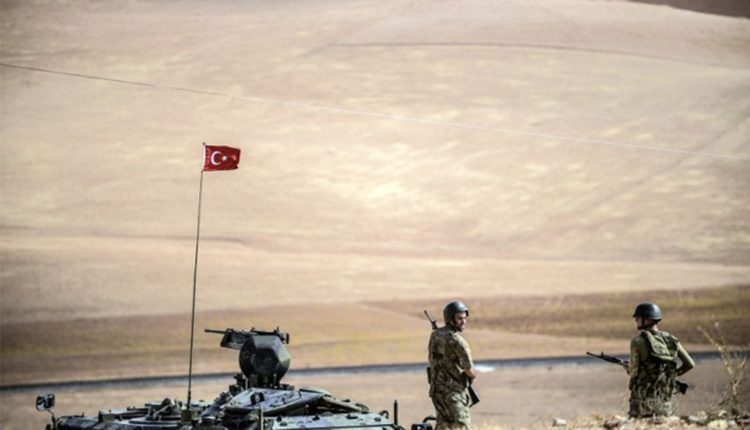Chief of Staff Visits Troops at Syrian Border Amid Idlib Tensions
The Chief of Staff of the Turkish army, Gen. Yaşar Guler, and Land Forces Commander Gen. Umit Dündar visited on Friday the troops near the Syrian border, at a time when Turkey has been in heated discussions with Russia and Iran about a possible offensive by the Syrian regime.
According to a statement issued by the Chief of Staff, Guler and Dundar supervised the military posts in the southwestern provinces of Gaziantep and Hatay, bordering Syria.
It was also reported in various media outlets that the Turkish government dispatched military reinforcements to the border in order to bolster its position in the Syria conflict recently centering around the city of Idlib.
Idlib, which is currently the last rebel-held area in Syria, has been a key issue in the recent weeks between Turkey, Russia and Iran, as the Syrian regime threatens to launch a military operation in the city.
Turkish Defence Minister Hulusi Akar said at a meeting with foreign ambassadors on Wednesday that an offensive in the densely populated rebel stronghold would “lead to a humanitarian tragedy” and that Ankara is holding talks with Russia and Iran to solve the issue.
Syrian Observatory for Human Rights reported on Thursday that a Turkish convoy entered from Kfar Lusin crossing in northern Idlib.
Syrian government recently launched a series of airstrikes against rebel groups in Idlib. Three medical centers and rescue workers were reportedly among the targets. Turkey called on the international community to stop Syrian President Bashar al-Assad.
More than 30,000 people were displaced due to an aerial campaign in Idlib in the first weeks of September alone. Those displaced travel to the Turkish border, seeking refuge, while Turkey is already home to over three million Syrian refugees.
In the meantime, a statement regarding Idlib came on Friday from Russian Foreign Minister Sergei Lavrov, who said Moscow would keep bombing targets in the Syrian city, however a humanitarian corridor can be opened for civilians.




Comments are closed.